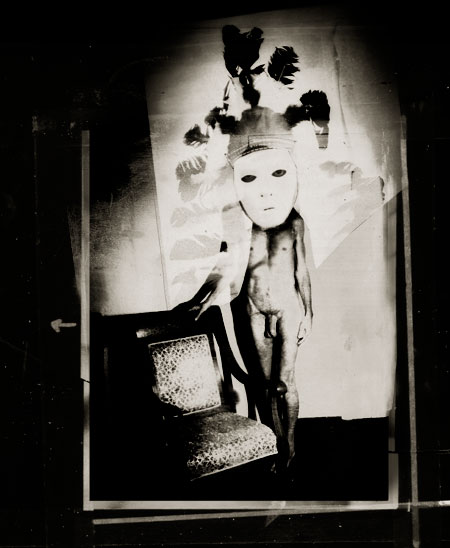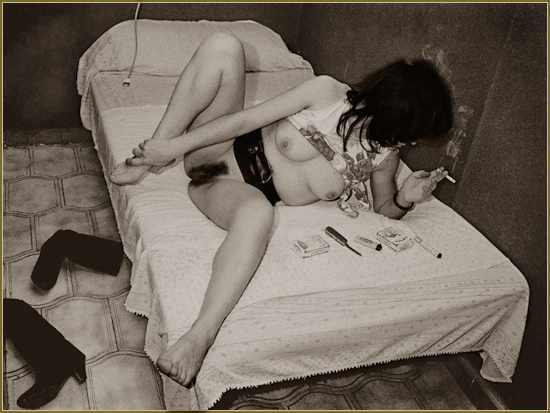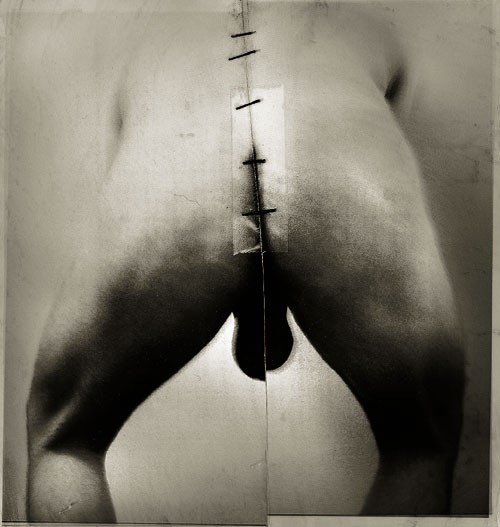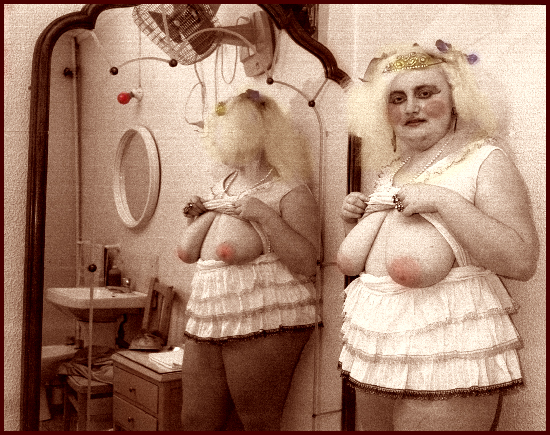

Poetry leads to the same place as all forms of eroticism--
to the blending and fusion of separate objects.
—Georges Bataille

Poetry & Eroticism
The pattern which may be glimpsed at heightened moments, is essentially mystical. It is a theme which runs through the history of erotic literature, suggesting that—just as every poem is an illumination of heightened experience—good erotic novels are illuminations of heightened experience of eroticism.
The idea that we will ever know of the universal pattern of being is apprehended during these heightened moments is difficult to argue rationally, but it can be expressed with overwhelming emotional logic in both poetry and erotic fiction, forms which have their primary effect on the reader’s emotions. By a re-creation of the details which led to the moment of heightened experience—of union with the pattern of being—poets and erotic writers hope to approximate the emotional impact of the moment itself.  Like contemporary poetry, contemporary erotic literature suggests the marvelous by means of allusiveness, fragmentation and disorientation. The unfolding of mystery seldom flows on a logical narrative fashion, coming rather in startling, momentary glimpses behind the veil between us and the universal pattern.
Like contemporary poetry, contemporary erotic literature suggests the marvelous by means of allusiveness, fragmentation and disorientation. The unfolding of mystery seldom flows on a logical narrative fashion, coming rather in startling, momentary glimpses behind the veil between us and the universal pattern.
Erotic literature is as likely as poetry to be experimental in presentation.
The poets who have written erotic literature have discovered in the sexual encounter and in the conventions of the genre the material for the creation of new dreams.
*
What is being celebrated in erotic fiction is the moment of heightened conciousness that occurs during sex.
In a similar fashion the poet attempts to excite the reader’s senses by means of his diction in order to re-create the feeling of this heightened moment.
The poet and the erotic novelist choose emotional rather than rational persuasion as their objective.
The danger of this appeal to the emotions is that in order to be effective it must draw from the depths in the personality that have been kept secret, often a frightening experience.
The internal censor that protects us from our emotions by keeping our secrets buried is the same force that dulls our receptivity to the sudden insights of poetry. This moment—when the veil between our civilized selves and our primitive selves is pierced—is like a hole in our armor through which the erotic novelist slips to discover the nature of the secrets we have taken such great care to hide. 
… poets who write erotic novels find the genre sympathetic because its subject matter is part of the raw material of poetry, and further, that since erotic novels are written along lines determined by emotional necessity, poets may write erotic novels the way they write poems.
The poet who writes a psychological novel with a conventionally logical narrative does so with another part of himself than he draws from when he writing poems.Poets have two sacred duties: One is to keep the language in good repair, and the other is the illumination of experience. In the performance of this second duty, poets have turned their attention to the erotic writing.
It is the poet’s task to interpret and illuminate its meaning. He has his ear to the same inner music when he writes poems or erotic novels, and the full harvest of his interest in eroticism is still to come.
* * *
The imaginative approaches to the theme of love, to the making of a mythos for it, are manifold,
and poets in this artistic mode of the pornographic genre are poets. Their use of pornography,
therefore, follows the dictates of imagination.
—Peter Michelson

If the poet and the erotic novelist draw from the same well—and are often the same person—why is it that we do not have a distinguished tradition of erotic poetry?
Censorship does not spare poetry when it sees a forbidden word on the page, and poets have a hard enough time finding an audience these days without running the risk of seeming offensive as well as obscure.
…poetry must bear the burden of delicacy and subtlety that has been associated with it in the modern era.The limerick—rhythmical, brief and humorous—is the ideal form of erotic poetry in puritanical cultures. Sex in the limerick is put in its place by laughter.
Poetic form depersonalizes the erotic experience, just as laughter does.
Sex only becomes threatening when it can no longer be laughed at, for laughter implies that a safe distance has been set between reader and sexual experience, whether the laughter originates in embarrassment or sophistication. This may account for the fact that most erotic poetry is humorous; generally speaking, when poets write seriously about sexuality the results are called love poems.
Humorous or conventionally formalistic poets distance themselves from their subject matter, but the straightforward approach of the new erotic poets demonstrates that there need be nothing embarrassing about the serious exploration of erotic experience.
*
Poets are the keepers of the language and for poets of the sixties this applied to the Anglo-Saxon vocabulary of sexuality.
Unfortunately, contemporary poetry does not reflect the possibilities inherent
in the encounter between poet and eros.When a poet censors his vision, he no longer tells the truth as he sees it.
—Lenore Kandel
* * *
Text excerpted from The Secret Record by Michael Perkins, from the chapters "The Poet as Erotic Novelist" and "Erotic Poetry." Images are by Mark Sink, Emil Schildt, Jay Gumm, Paco Ferrer, Jay Gumm, and Paco Ferrer, consecutively. Collage by Terri Carrion.